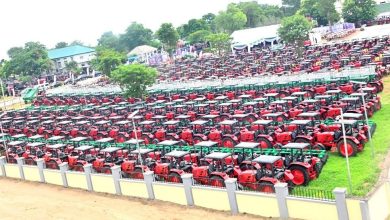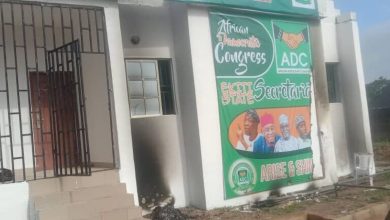Tensions Escalate in Benue State as Gunmen Kill 25 in Fresh Attacks
At least 25 people were killed in Benue State over the weekend as herder-farmer clashes reignited, leaving communities in fear and authorities scrambling for effective security solutions.
The deadly attacks, confirmed by local leaders in Apa and Gwer West, reflect a deepening crisis fueled by land disputes, weak law enforcement, and unresolved ethnic and religious tensions.
At least 25 people lost their lives over the weekend in two separate attacks in Benue State, Nigeria, as violent clashes between farming communities and herders continue to destabilize the region. Local authorities confirmed the killings on Monday, underscoring the ongoing crisis in the state, which has become a hotspot for deadly communal conflict.
According to Adam Ochega, Chairman of the Apa Local Government Area, the first attack occurred on Sunday in the community of Ankpali. Armed assailants stormed the area, killing 14 residents. “There are still some threats here and there,” Ochega stated, warning that the situation remains tense and unpredictable.
Later that same day, another wave of violence hit Naka village in Gwer West Local Government Area, where 11 more people were killed. Council chairman Ormin Victor confirmed the toll and added that five others sustained injuries during the attack. Authorities have attributed the assault to suspected Fulani militias, continuing a long-standing pattern of reprisal and revenge attacks in the area.
“These are coordinated attacks, and our communities are under siege,” Victor lamented. Last month, Gwer West was the site of another devastating episode where 44 people were killed within just four days. While the motives behind the fresh attacks remain unclear, suspicion continues to fall on Fulani herders, a group frequently accused of perpetrating such violence.
The conflict in Benue is rooted in an enduring and complex rivalry between Muslim Fulani nomadic herders and largely Christian farming communities. The competition over access to land, grazing routes, and water sources has historically been the flashpoint for violence. Climate change and population growth have only worsened these tensions, with arable land becoming increasingly scarce.
The Middle Belt region of Nigeria, which includes Benue, has become a battleground where ethnic, religious, and economic interests collide. In a recent report, Amnesty International highlighted the severity of the situation, revealing that no fewer than 6,896 people have been killed in Benue State alone in the past two years due to such violence. These numbers reflect a humanitarian crisis that is both deepening and largely unaddressed.
Compounding the crisis is the weakness of Nigeria’s policing and security infrastructure. Many communities are left vulnerable, with little to no protection from such attacks. The absence of timely law enforcement responses often results in reprisal killings, further escalating the cycle of violence. Residents frequently report that once attacks occur, little follow-up or investigation is carried out by authorities.
Fulani herders, for their part, have also voiced grievances, claiming they are being targeted by farming communities in a bid to seize grazing land. They allege that their cattle are often poisoned or stolen and that some of their members have been killed in retaliatory attacks. This back-and-forth cycle of aggression and revenge has made peace negotiations extremely difficult.
The situation in Benue is mirrored in neighboring Plateau State, where over 150 people were killed in April alone due to similar ethnic and land-related clashes. In Plateau, the crisis is compounded by political tensions between indigenous groups and those classified as settlers, as well as the rise of hardline religious movements that have further polarized the communities.
The latest killings in Benue once again spotlight the urgent need for a comprehensive security strategy and a sustainable conflict resolution framework in Nigeria’s Middle Belt. Without meaningful intervention from both state and federal authorities, the region remains at risk of descending further into chaos.



